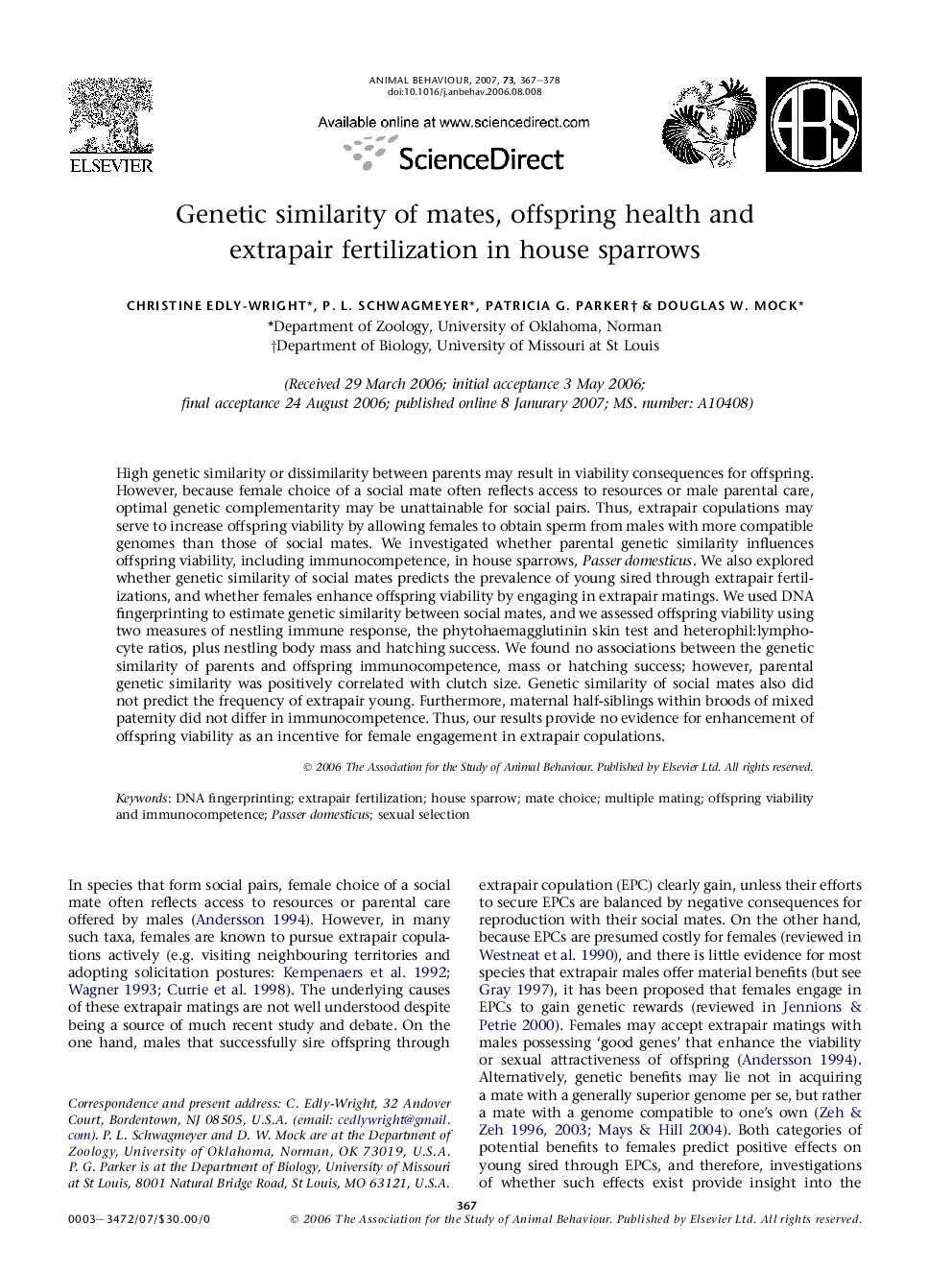| Article ID | Journal | Published Year | Pages | File Type |
|---|---|---|---|---|
| 2418139 | Animal Behaviour | 2007 | 12 Pages |
High genetic similarity or dissimilarity between parents may result in viability consequences for offspring. However, because female choice of a social mate often reflects access to resources or male parental care, optimal genetic complementarity may be unattainable for social pairs. Thus, extrapair copulations may serve to increase offspring viability by allowing females to obtain sperm from males with more compatible genomes than those of social mates. We investigated whether parental genetic similarity influences offspring viability, including immunocompetence, in house sparrows, Passer domesticus. We also explored whether genetic similarity of social mates predicts the prevalence of young sired through extrapair fertilizations, and whether females enhance offspring viability by engaging in extrapair matings. We used DNA fingerprinting to estimate genetic similarity between social mates, and we assessed offspring viability using two measures of nestling immune response, the phytohaemagglutinin skin test and heterophil:lymphocyte ratios, plus nestling body mass and hatching success. We found no associations between the genetic similarity of parents and offspring immunocompetence, mass or hatching success; however, parental genetic similarity was positively correlated with clutch size. Genetic similarity of social mates also did not predict the frequency of extrapair young. Furthermore, maternal half-siblings within broods of mixed paternity did not differ in immunocompetence. Thus, our results provide no evidence for enhancement of offspring viability as an incentive for female engagement in extrapair copulations.
